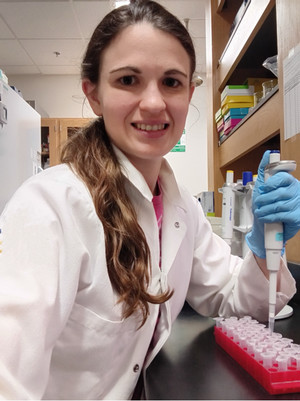
Microorganisms are key drivers of many processes including organic matter decomposition, nutrient cycling, maintenance of community biodiversity, promotion of plant health and productivity, and plant resilience to climate change. Understanding what shapes microbiomes and their interactions with plants is therefore critical for maintaining healthy natural ecosystems and sustainable agricultural practices.
Amanda’s dissertation research brings together integrative, cross-disciplinary approaches from microbiology, ecology, and molecular biology to better understand microbiome assembly and function in natural and agro-ecosystems. Her research experimentally demonstrated for the first time that highly connected central taxa within soil microbiome networks are keystone species in their natural environments, enhancing biodiversity and recruitment of other highly connected taxa, and influencing the trajectory of microbiome composition during early succession. She has also investigated how multiple mutualists interact with plant genotype to impact plant phenotypic responses to pathogens. She is using this information to develop an ecological and mechanistic understanding of how microbiomes form and underpin plant health and for future genome-led breeding efforts to reduce the susceptibility of plants to emergent diseases.
Amanda has recently been awarded over $140,000 as a USDA-NIFA predoctoral fellow. This prestigious fellowship will fund the remainder of her dissertation work to examine the functional and stability properties of root microbiomes in domesticated and wild citrus. Amanda will work with collaborators in Florida and California to characterize citrus microbiomes across a domestication gradient and identify candidate plant gene targets that promote beneficial rhizosphere assembly.
In addition to her research achievements, Amanda has also been an active member of the University of Miami Biology department where she has strived to increase diversity, equity, and inclusion in STEM and serve her community as the current Biology Graduate Student Organization (BGSO) President. Amanda recently served as the first BioReach Graduate Student Director, helping organize outreach experiences for nearly 1000 middle school students to participate in hands-on activities from UM faculty, postdocs, and graduate students. She has also worked with the Science Made Sensible Program to mentor UM undergraduates in the development of interactive, hypothesis-driven lesson plans which are then used to engage local middle school students.




